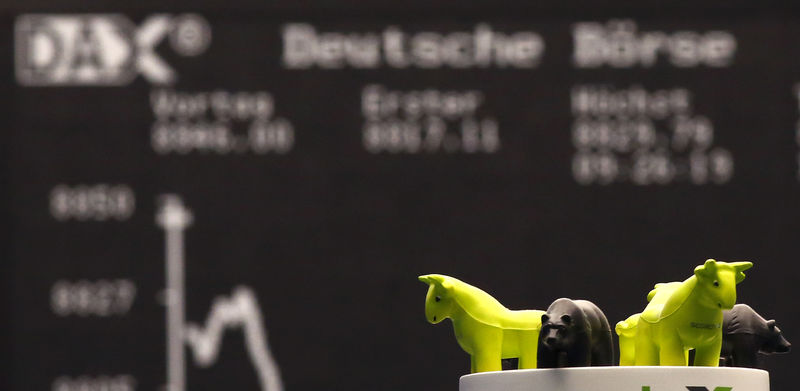Investing.com - European stock markets mostly fell Thursday as the ongoing conflict in the Middle East weighed on sentiment, ahead of the release of regional economic activity data.
At 03:05 ET (07:05 GMT), the DAX index in Germany traded 0.4% lower and the CAC 40 in France fell 0.3%, whilethe FTSE 100 in the U.K. climbed 0.3%.
Middle East conflict escalates
Israel bombed central Beirut early on Thursday, killing at least six people, as it continued its pursuit of Iran-backed Hezbollah after beginning ground incursions in Lebanon on Tuesday.
Iran responded on Wednesday by firing around 180 ballistic missiles at Israel - its biggest ever assault on Israel. Tehran has said that it had finished, barring further provocation, but Israel and the United States promised to hit back hard.
“Escalation in the Middle East has led markets pricing in a greater risk of a fully-fledged conflict in the region, which could potentially involve the US,” analysts at ING said, in a note.
Services PMI data due
There is more economic data for European investors to study Thursday, the day after numbers showed unemployment across the eurozone held steady on the month at a record-low 6.4% in August.
Services PMIs are due across Europe, and are likely to show further moderation in activity and cement expectations for rate cuts in the region.
Tesco (OTC:TSCDY) raises full-year guidance
In the corporate sector, Tesco (LON:TSCO) stock rose over 1% after the British supermarket upgraded its full-year profit guidance after revealing strong half-year results.
“We are in good shape, with volume growth delivering strong financial performance,” said CEO Ken Murphy.
Crude gains on Middle East turmoil
Oil prices rose Thursday as the escalating violence in the Middle East raised concerns that crude flows could be disrupted from this key exporting region.
By 03:05 ET, the Brent contract climbed 1.3% to $74.89 per barrel, while U.S. crude futures (WTI) traded 1.6% higher at $71.19 per barrel.
Traders are waiting for Israel’s response to Iran firing more than 180 missiles into its territory on Wednesday, amid concerns it could target Iranian oil infrastructure.
Meanwhile, U.S. crude inventories rose by 3.9 million barrels to 417 million barrels in the week ended on Sept. 27, the Energy Information Administration said on Wednesday, compared with expectations for a 1.3 million-barrel draw.
